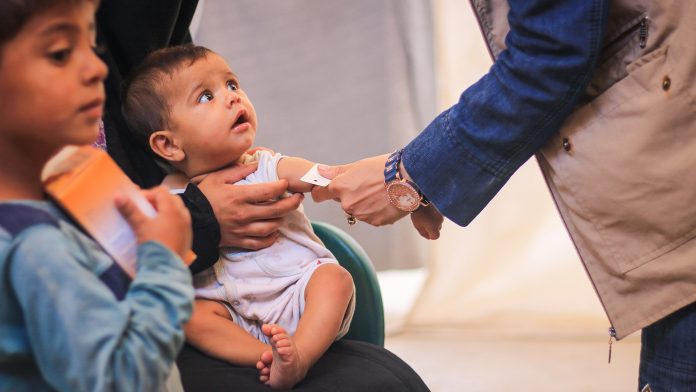
United Nations agencies call for urgent action to tackle malnutrition in children hit by unprecedented food and nutrition crises.
Malnutrition in children is taking over countries as a result of conflict, climate shocks, the ongoing impacts of COVID-19, and rising costs of living. More children than ever are becoming malnourished as key health, nutrition and other lifesaving services are becoming less accessible.
Currently, more than 30 million children in the 15 worst-affected countries suffer from wasting or acute malnutrition. Eight million of these children are severely wasted, the deadliest form of undernutrition. This is a major threat to children’s lives and to their long-term development.
“More than 30 million children are acutely malnourished across the 15 worst-affected countries, so we must act now and we must act together. It is critical that we collaborate to strengthen social safety nets and food assistance to ensure Specialised Nutritious Foods are available to women and children who need them the most,” commented David Beasley, Executive Director of World Food Programme (WFP).
Global Action Plan on Child Wasting policy
To combat malnutrition in children, five UN agencies including the Food and Agriculture Organization (FAO), the UN Refugee Agency (UNHCR), the United Nations Children’s Fund (UNICEF), the World Food Programme (WFP) and the World Health Organization (WHO) are calling for more progress on the Global Action Plan on Child Wasting. This policy aims to detect and treat malnutrition in children in the worst-affect countries, which are Afghanistan, Burkina Faso, Chad, the Democratic Republic of the Congo, Ethiopia, Haiti, Kenya, Madagascar, Mali, the Niger, Nigeria, Somalia, South Sudan, Sudan and Yemen.
“The UN system is responding as one to this crisis and the UN Global Action Plan on Child Wasting is our joint effort to prevent, detect and treat wasting globally. At UNHCR we are working hard to improve analysis and targeting to ensure that we reach children who are most at risk, including internally displaced and refugees populations,” added Filippo Grandi, High Commissioner, United Nations High Commissioner for Refugees (UNHCR).
Malnutrition in children needs to be addressed now
The Global Action Plan addresses the need for a multi-sectoral approach. It highlights priority actions across maternal and child nutrition through food, health, water and sanitation, and social protection systems. Within this progress, the UN agencies have outlined five priority actions that will be effective in addressing acute malnutrition in children living in countries affected by conflict and natural disasters and in humanitarian emergencies.
The UN agencies are asking that decisive and timely action is implemented to prevent this crisis from worsening. All agencies urge more significant investment in support of a coordinated UN response that will meet the unprecedented demands of this crisis.
“The global food crisis is also a health crisis, and a vicious cycle: malnutrition leads to disease, and disease leads to malnutrition,” said Dr Tedros Adhanom Ghebreyesus, Director-General of the World Health Organization (WHO).“Urgent support is needed now in the hardest hit countries to protect children’s lives and health, including ensuring critical access to healthy foods and nutrition services, especially for women and children.”

























